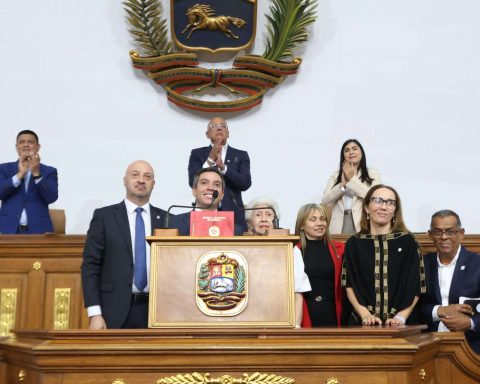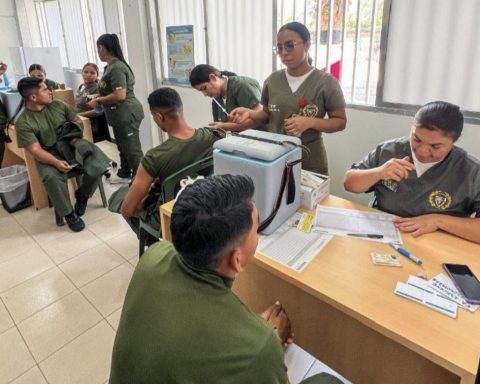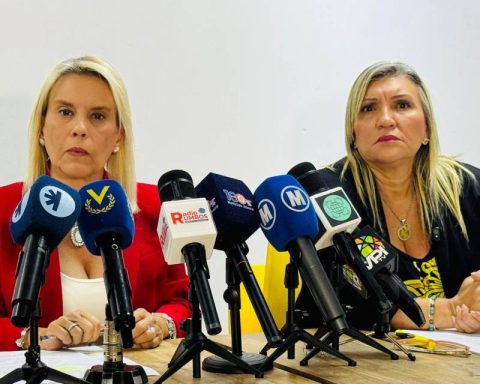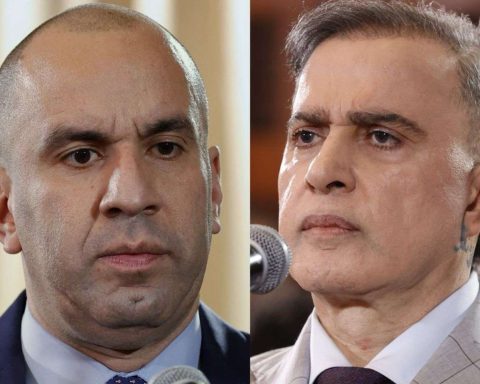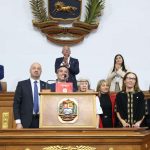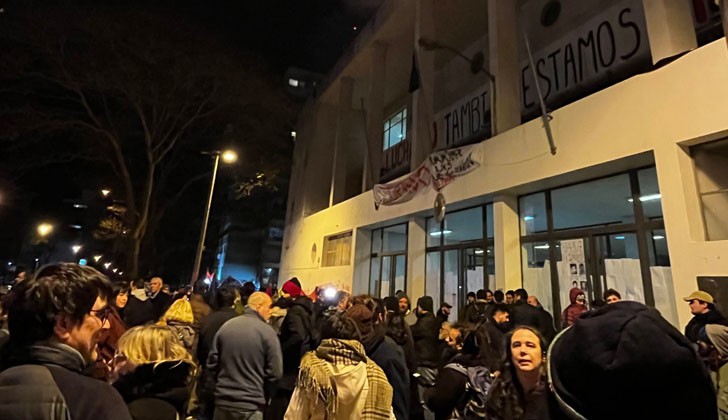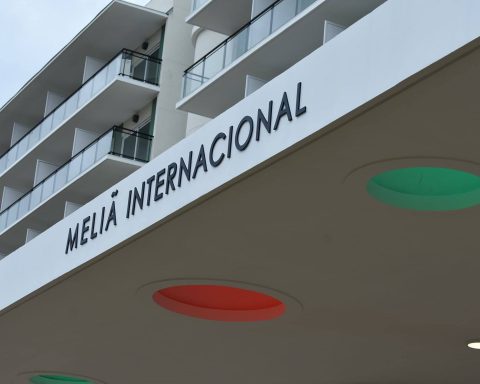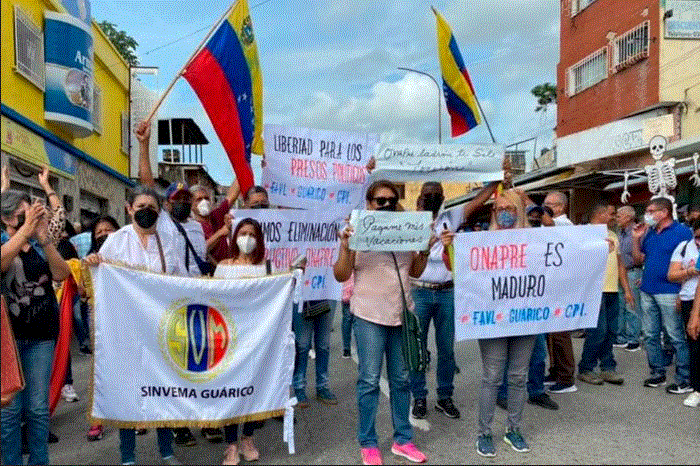
In any human activity, and especially in the political sphere, to achieve a victory without knowing how it was achieved and without learning from it is to reduce it in practice to a merely random event and take away all its potential significance.
Beyond any accommodative version, on August 12 there was a resounding popular victory over the Maduro government and certainly the most resounding since the victory of Sergio Garrido in Barinas that ended in January of this year more than five decades of official domain in that state.
For a long time, and in a systematic way that leaves no doubt that it responds to an intentional and methodical policy, the labor rights of the country’s workers have been repeatedly violated, especially those of the public administration. These violations are both of the collective rights related to freedom of association, collective bargaining and the right to strike, among others, and individual rights that have to do, among others, with the right to work, equality and the right constitutional and human right to have a decent wage.
This systematic policy of violations of the fundamental rights of workers reached its highest point on March 22, when the National Budget Office (Onapre), attached to the Ministry of Economy, Finance and Foreign Trade issued an “Instructions for the process of adjustment of the Remuneration System of the Public Administration, collective agreements, special tables and strategic companies». The truth is that such a bureaucratic title hid the express objective of drastically reducing the remuneration of public sector workers, as it actually began to be produced, in a style that leaves the wild neoliberalism so present in the origins of the official narrative in its infancy. In the latter, it is common practice not to increase salaries so as not to affect public spending or alter the State’s fiscal accounts. But the madurista neoliberal modality intends to go further and aspires to balance the finances of the exploiters at the cost of lowering the salaries and other acquired rights of the working masses.
Based on such a savage claim, massive demonstrations of indignation and protest began to rise progressively throughout the country, led by professors, employees, and workers from the universities – one of the sectors most affected by the official instruction, along with the health-, trade unions, NGOs, public employees and workers’ movements. These demonstrations were harshly repressed by the government, and many of their participants were victims of intimidation, arbitrary arrests and dismissals.
The brute force of the government failed to contain the demonstrations. And faced with the serious threat of transforming the protest into a national strike in the education sector, which would be followed by similar actions in other sectors, the government -despite its bravado- begins to give its arm to twist, with the forced announcement already reluctantly of the payment of 100% of the vacation bonus of the educational sector which was intended to be vulgarly “expropriated” so that the official accounts would not be affected. The labor sectors have announced that the demonstrations and pressure will continue until the definitive repeal of the Onapre instruction is achieved, but this first step constitutes a political achievement of capital importance, not only because of its practical implications but also because of the lessons that this triumph implies.
What are the keys to this still incomplete but very significant popular victory? There are 6 that need to be analysed, albeit briefly, above all because they can give us the answer on what needs to be done to materialize the democratic liberation of Venezuela.
1) The first thing is that the protests that began in May managed to become a movement of authentic civic pressure. In other words, they were not isolated, cathartic manifestations, each one on its own, without continuity or direction. On the contrary, they were organized popular expressions, connected to each other, systematic, constant and with a directionality oriented towards those responsible for the violated rights, which allowed it to become a social instrument of powerful political effectiveness.
2) These popular mobilizations not only originated throughout the country, but were completely depolarized. They did not respond to the artificial game of opposition against the government, as if the polarization that exists was that and not that of a huge suffering country against a minority of privileged people who exploit them. It was not about opposition vs. government, but about workers vs. their exploiters. Trade unions and Chavista bases participated in them along with those that are not. Nor was there prominence of partisan factions or leaders in search of figuration. It was a true unitary, depolarized, heterogeneous and broad struggle.
3) The reason for the mobilizations was tangible. They were not originated by an abstract cause but by a very concrete one. For the majority, the money that was intended to be expropriated from them was the money needed to buy medicine, try to pay for medical treatment or to buy school supplies for their children. It was a fight in which rights perceived as very sensitive but especially very close to the reality of each person were defended. One of the urgent challenges to take on, in the face of the necessary mobilization in the fight for fair elections, is to make the majority perceive and feel that what is at stake is not a political position or a contest alien to it and its problems, but the real welfare of his own family. But for this, the first step is to be present in their daily lives and actively accompany the sectoral struggles for their survival and for the defense of their constantly violated rights.
4) Do not fall into the distraction of the threats of the privileged. From attempts to minimize the impact of the demonstrations (“they are very small” according to the official leader Jesús Faría, they are the product of manipulation, according to Maduro, or they are an invention of the “reactionary right” according to deputy Pedro Carreño), to the direct threats such as those of the pro-government television presenter Mario Silva (“Throw the strike, throw balls at it, so you can see how the red tide is going to come over you”), the government tried in vain to apply its usual cocktail , which is the simultaneity of repression, threats and devaluation. On other occasions, these actions would have caused despair and discouragement. But in this case, on the contrary, it was understood that they were whistles in the dark of the frightened, given the real possibility that popular discontent would come upon them, transformed – this yes – into a true popular hurricane. Most did not succumb to the government’s chronic game of sowing despair.
5) The civic pressure that was generated made the warning of a national strike of the entire education sector really a credible threat to the government, not like the fanciful foreign interventions or the illusory constitution of extranational forces. This one was serious and also possible.
6) Finally, the political subject of this victory was the organized people. It was not about any enlightened vanguard with pretensions to save the country from above, but the people themselves organized in their unions, federations and representation groups, fighting for what they considered worth risking.
Difficult times are coming. The government is going to want – as always and it should not be surprising – to play dirty in the next electoral scenario, which does not exclude the possibility of an interested advancement of the election date.
The 6 lessons of this recent popular victory have to be learned. And this happens by beginning to generate the conditions for them to develop, materialize and begin to cause a similar effect in the case of the next presidential elections. It is not easy, just as the democratic liberation of Venezuela is not. But it is unavoidable, if we do not want to soon be lamenting the permanence of the current political class at least – and for now – six more years in power.
@angeloropeza182

